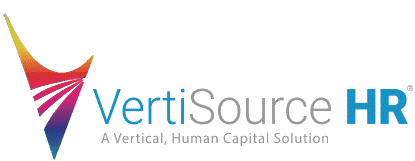For California, 2019 is all about continuing its active involvement in regulating the employer-employee relationship. The state’s legislature is enacting many new laws affecting California employers, from workplace discrimination, harassment and retaliation protections to required gender representation on boards of directors to wage and hour protections, just to name a few. Last year’s #MeToo movement also prompted a slew of new bills addressing sexual harassment in the workplace, which employees will see the effects of in the coming year. Paid family leave and sick time, lactation accommodations and workplace safety are also among the issues being addressed in 2019 with new legislation.
Needless to say, California employers will be facing a lot of changes in the new year. Here is a list of bills and laws that will be affecting the workplace and what employers need to know.
Sexual Harassment and Discrimination
SB 1343: Sexual harassment training requirements have been in place since 2005 for California employers with more than 50 employees, for supervisory employees only. Effective this year, businesses with five or more employees will be required to provide sexual harassment prevention training to all workers by January 1, 2020, and every two years thereafter. In addition, employers must ensure similar training in multiple languages for all workers so they know what sexual harassment is and what their rights are under the law.
Senate Bill (SB) 820: Prohibits non-disclosure provisions in settlement agreements related to civil or administrative complaints of sexual assault, sexual harassment, and workplace harassment or discrimination based on sex. The bill expressly authorizes provisions that (i) preclude the disclosure of the amount paid in settlement and (ii) protect the claimant’s identity and any fact that could reveal the identity, so long as the claimant has requested anonymity and the opposing party is not a government agency or public official. Settlement agreements signed after January 1, 2019, should be reviewed by counsel to ensure compliance with the new restrictions.
SB 1300: Toughens the level of liability that employers face if discrimination and harassment are conducted in the course of business by outside contractors and other non-employees. It significantly expands liability under the Fair Employment and Housing Act (“FEHA”), lowering the burden of proof to establish harassment. It also “provides stricter guidance on what constitutes “severe or pervasive” conduct that rises to the level of unlawful harassment”, according to Fox Rothschild Attorney of Law. These changes take effect at the start of the new year and will monitor interpretations or guidance of these new and expansive provisions.
Assembly Bill (AB) 3109: Prohibits language in contracts or settlement agreements that bars anyone from testifying in administrative, legislative or judicial proceedings concerning alleged criminal conduct or sexual harassment.
Paid Family Leave and Lactation Accommodations
SB 1123: Beginning January 1, 2021, the scope of the Family Temporary Disability Insurance Program (under Paid Family Leave), will include time off to attend to a “qualifying exigency” related to an individual’s spouse, registered domestic partner, child or parent who is an active duty member of the United States Armed Forces. These qualifying exigences refer to issues that arise from a call or order; attending an official ceremony, program or event sponsored by the military that is related to the covered active duty; or arranging for alternative childcare for a child when the active duty or call to active duty necessitates a change in the existing childcare arrangement.
SB 1123: This bill only affects “covered active duty members,” meaning those members that are deployed in a foreign country.
AB 1976: While the current California law, requires employers to provide a private location in close proximity to the employee’s work area, other than a toilet stall, for an employee to express breast milk, the new law is pushing this a bit further. AB 1976 requires employers to provide a room or location, other than a bathroom, in close proximity to the employee’s work area.
Employers can create a temporary location if there are financial or space limitations just so long as the temporary lactation location is private and free from intrusion.
Employers can be exempt from the law’s mandate if it can demonstrate that having to provide the employee with the use of a room or other location, other than a bathroom, would impose an undue hardship when considered in relation to the size, nature, or structure of the employer’s business. But they must still create a space other than a bathroom.
Minimum Wage
On January 1, 2019, California’s state minimum wage increases to $11.00 per hour for employers with 25 or fewer employees and to $12.00 per hour for employers with 26 or more employees. Although this is not a new law – SB 3 was signed in 2016- but this is the year employees will see the increase.
Also effective January 1, 2019, “the minimum monthly salary for exempt employees is either: $4,160.00 (or $49,920.00 annually), if the employee works for an employer with 26 or more employees, or $3,813.33 (or $45,760.00 annually), if the employee works for an employer with 25 or fewer employees.”
For more information on California’s Anti-Harassment legislation, read our blog “California’s Anti-Sexual Harassment Laws: What Employers Need to Know”.
Contact VertiSource HR® if you have any questions regarding the implementation of 2019 legislation.


